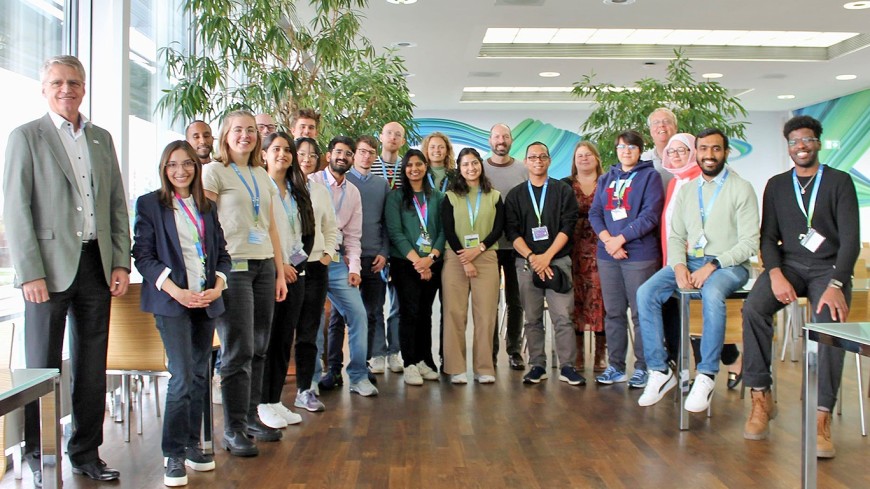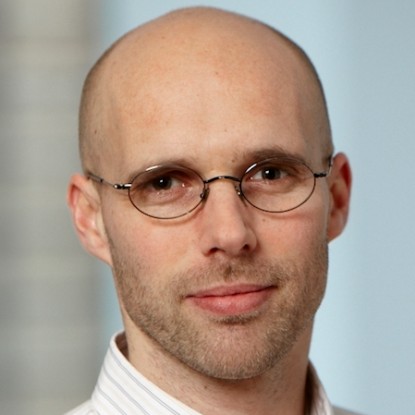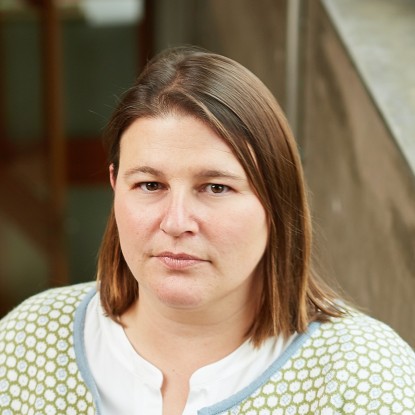Successful start-up concepts with biomaterials
ryon Summer School under the motto ‘From the idea to the start-up’
2024/10/25 by Centre for Synthetic Biology
The 2nd ryon Start-Up Summer School took place in Darmstadt in October 2024. Participants had the opportunity to take a look into the future of synthetic biology. Over five varied days, the international participants learnt a lot about business models and how to develop a business model from an idea into a professional pitch deck in just a few days. This year's event focussed on biomaterials in the context of the ‘CoM2Life’ cluster project, which is in the running for a Cluster of Excellence in the renowned Excellence Strategy of the German federal and state governments.

The ryon Summer School was opened on the first two days as part of a symposium with presentations by internationally outstanding researchers in the field of biomaterials and synthetic biology: Avi Schröder (Technion Israel), Brigitte Staedler (Aarhus University), Roman Jerala (National Institute of Chemistry, Ljubljana), Martin Grininger (Goethe University Frankfurt), Martin Fussenegger (ETH Zurich) and Aranzazu del Campo (INM Saarbrücken). From TU Darmstadt, the two young researchers Andrea Belluati (Emmy Noether Research Group at the Department of Chemistry) and Fatemeh Mirzapour (Junior Professorship at the Department of Biology) presented their work. Finally, the start-ups Akribion Genomics and Biovox reported on the real life of a start-up.
Realised in the business case
Over the course of the week, all teams further developed an idea from the field of biomaterials and turned it into a business case. They were supported by the experienced business coaches Georg Fischer (SAP) and Bartosz Kajdas (STARTUPS From Science).
The final pitches took place at the ryon GreenTech Accelerator in Gernsheim, where the teams were assessed by an experienced jury consisting of Dorothea Starck (BASF SE), Andrea Miclea (High-Tech Gründerfonds), Silko Grimm (Evonik), Michael Rayner (Merck KgaA) and Nico Bruns (TU Darmstadt).
The winning team, consisting of Lara Luana Teruel Enrico, Soumya Sethi, Siyu Song and Magdalena Schachtl-Riess, presented the start-up project LivLuLens, which is based on an already patented and published research result from the Leibniz Institute for New Materials (INM Saarbrücken, Dynamic Biomaterials). The aim is to develop an innovative contact lens that contains a small ring of bacteria and continuously produces hyaluronic acid to ensure optimum moisture. The prize for the best start-up pitches was presented by Thomas Walther, TU Vice President for Innovation and International Affairs.
Under the motto ‘From idea to start-up’, the Summer School has created a platform to give young researchers the opportunity to develop and realise new business ideas. The event is organised by Joerg von Hagen from the ryon GreenTech Accelerator, Heinz Koeppl, spokesperson for the Centre for Synthetic Biology, Andreas Walther (JGU Mainz) and Tanja Weil (MPI Mainz).
The programme is supported by the Rhine-Main universities Goethe University Frankfurt, the Technical University Darmstadt, the Gutenberg University Mainz and their technology transfer offices Highest, Innovectis and TQ.
With the central theme of biomaterials, the event was organised in the context of the ‘CoM2Life’ cluster project, which is in the running for a Cluster of Excellence in the prestigious Excellence Strategy of the German federal and state governments.
ryon Rhine-Main-Universities Summer School 2024
Further information and registration here.
Cluster project “CoM2Life”
“CoM2Life” aims to develop a fundamentally new generation of soft biomaterials that are able to enter into permanent and reciprocal communication with biological systems such as cells and tissues by integrating the principles of living systems. The researchers are following an approach that combines the chemistry-centered design of biomaterials with the design of regulatory circuits in synthetic biology. This enables the development of intelligent biomaterials that are capable of selectively detecting signals from their environment, processing them internally and then controlling actuators and effectors as required.
TU Darmstadt is represented in the Excellence Strategy competition with a total of three project outlines. In addition to “CoM2Life” on communicating biomaterials, these are “Reasonable Artificial Intelligence” (RAI) on artificial intelligence and “The Adaptive Mind” (TAM) from the field of cognitive sciences.


